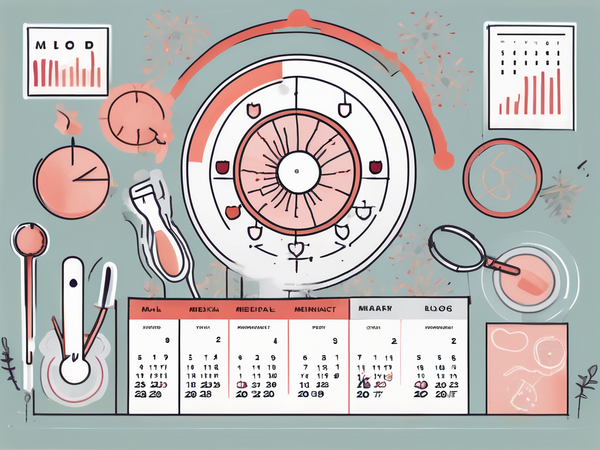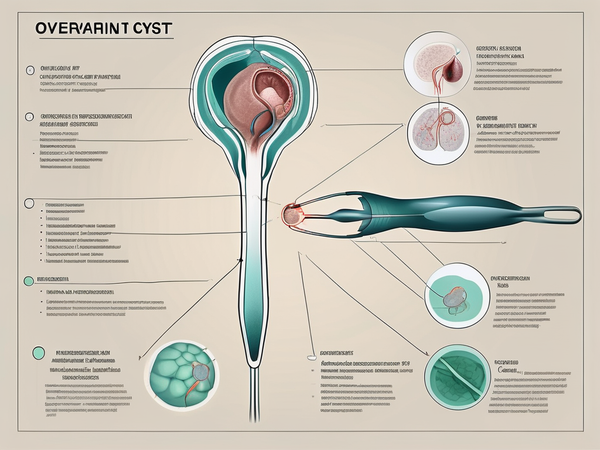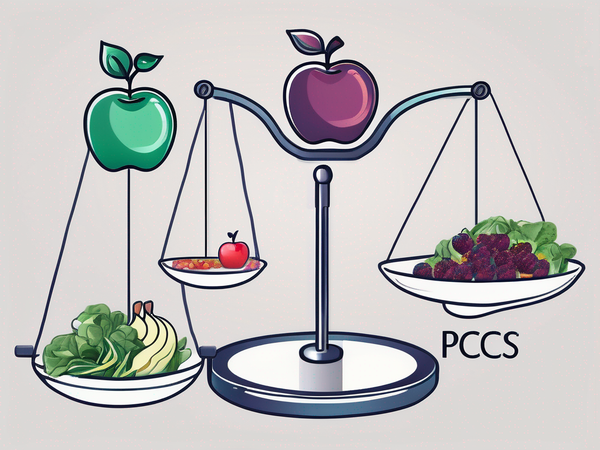Polycystic ovary syndrome (PCOS), is one of the major endocrinopathy disorders prevalent among reproductive-aged women. As per a 2020 report published in the Journal of Human Reproductive Sciences, this health condition affects nearly 4%–20% of women of reproductive age worldwide. This blog will talk briefly about the difference between PCOD and PCOS, its symptoms, and whether or not it impacts fertility among women. Also, we’ll talk about some possible treatments for the same. So what are we waiting for? Let’s find out.
What are PCOD and PCOS?
While most people use the terms PCOD and PCOS interchangeably, they’re not the same.
PCOD (Polycystic Ovarian Disorder)
PCOD stands for polycystic ovarian disease, wherein the ovaries in women produce partially mature or completely immature eggs. These eggs are produced in large numbers and become cysts over time. PCOD is more common and is usually less dangerous.
Symptoms of PCOD
- Abdominal weight gain
- Male pattern hair loss
- Irregular periods
PCOS
On the other hand, PCOS stands for polycystic ovary syndrome and is related to hormones. In this condition, women usually suffer from prolonged or infrequent menstrual periods and high levels of male hormone (androgen). Also, PCOS is a less common and more serious condition.
Symptoms of PCOS
- Hair Loss
- Obesity
- Infertility
Towards our Burning Question: Can PCOD and PCOS Affect Fertility?
Although common, PCOD doesn’t impact fertility in women. Women suffering from this condition can normally ovulate and become pregnant. However, some lifestyle changes and professional help or medication are required to ensure a smooth pregnancy.
On the other hand, PCOS is more serious and can become the reason behind anovulatory infertility (that affects ovulation), according to research. The research says that 90-95% of the anovulatory women seeking treatment for infertility have PCOS.
So, the answer to the question of whether or not PCOD and PCOS affect fertility is both a Yes and a No. PCOD doesn’t lead to fertility, while PCOS does.
How to Diagnose PCOD and PCOS?
Here’s what a gynecologist might suggest you diagnose for PCOD/PCOS:
Imaging Test
An ultrasound imaging test is conducted to check the cysts in the ovaries, the lining of the uterus, and the size of the ovaries.
Pelvic Examination
The medical professional will check the reproductive organs physically for abnormalities, any growths, or masses.
Blood Tests
The blood tests help check the hormone levels. These tests also include glucose tolerance, total cholesterol, high-density triglyceride levels, and low-density lipoprotein.
How can you Deal with PCOD and PCOS and Improve Fertility?
There’s no known cure that completely wards off PCOD/PCOS. However, you can deal with the symptoms one by one. Here’s what you can do:
Menstrual Cycle Regulation
You can go for medications to treat insulin resistance and hormonal imbalance and thus regulate the menstruation cycle.
Lose Weight
Maintaining an optimum weight and shedding some extra pounds can help you prevent the risk of diabetes, heart issues, blood pressure, which amounts to healthy menstruation and better fertility.
You can add some easy-to-do exercises, yoga, and meditation to your daily routine to maintain a healthy body weight.
Ovulation Induction
Ovulation induction helps stimulate egg development & release. You can achieve this by consuming medications as prescribed by a medical professional.
Dealing with Infertility
You can go for different fertility medications as prescribed by your doctor to deal with infertility.
Limit the Carbs
Limiting the carbohydrates you consume can help you maintain healthy insulin levels, which is quite important if you want to deal with infertility. Consume meat, eggs, fish, and veggies that grow above ground, and natural fats. Avoid rice, pasta, beans, and potatoes.
While there isn’t a known cure for PCOD/PCOS, you can still do a lot to improve fertility and better manage the condition. On top of following the aforementioned ways, you can include Fertility Slow to your daily routine that can help manage fertility issues,
Fertility Slow from Wellbeing Nutrition is a time-conscious supplement in vegan omega oil that is meant both for men and women who’re suffering from hormonal imbalances.
Fertility Slow comes packed with amazing ingredients such as the B complex that prepares your body for conception, plays an important role in DNA synthesis, and reduces the chances of birth defects in babies. Also, it contains vitamin B12, magnesium, and folic acid that ensure spinal cord and neural tube development.
Furthermore, Fertility Slow comes with ashwagandha, which is known to improve hormone regulation, sexual behavior, and menstruation, DHA to ensure fetal eye and brain development, and vitamin E and spirulina to deal with oxidative stress and to curb inflammation.
All in all, you can significantly improve fertility and the chances of conceiving by consuming 2 capsules of Slow Fertility each day. The supplement is safe, free from side effects, and reliable. So, order Slow Fertility now.
Wrapping Up
Female fertility is way more complex as compared to men and is impacted by numerous conditions. And one such condition is PCOS and PCOD. However, you can deal with the symptoms by following some lifestyle changes. And as far as fertility is concerned, you can go for Slow Fertility. This supplement is perfect if you want to deal with hormonal issues or/and want to conceive.
References
Ndefo, U. A., Eaton, A., & Green, M. R. (2013). Polycystic ovary syndrome: a review of treatment options with a focus on pharmacological approaches. P & T: a peer-reviewed journal for formulary management, 38(6), 336–355. https://www.ncbi.nlm.nih.gov/pmc/articles/PMC3737989/
Pasquali, R., Stener-Victorin, E., Yildiz, B. O., Duleba, A. J., Hoeger, K., Mason, H., Homburg, R., Hickey, T., Franks, S., Tapanainen, J. S., Balen, A., Abbott, D. H., Diamanti-Kandarakis, E., & Legro, R. S. (2011). PCOS Forum: research in polycystic ovary syndrome today and tomorrow. Clinical endocrinology, 74(4), 424–433. https://doi.org/10.1111/j.1365-2265.2010.03956.x
Dennett, C. C., & Simon, J. (2015). The role of polycystic ovary syndrome in reproductive and metabolic health: overview and approaches for treatment. Diabetes spectrum : a publication of the American Diabetes Association, 28(2), 116–120. https://doi.org/10.2337/diaspect.28.2.116
Kennedy D. O. (2016). B Vitamins and the Brain: Mechanisms, Dose and Efficacy--A Review. Nutrients, 8(2), 68. https://doi.org/10.3390/nu8020068
Nasimi Doost Azgomi, R., Zomorrodi, A., Nazemyieh, H., Fazljou, S., Sadeghi Bazargani, H., Nejatbakhsh, F., Moini Jazani, A., & Ahmadi AsrBadr, Y. (2018). Effects of Withania somnifera on Reproductive System: A Systematic Review of the Available Evidence. BioMed research international, 2018, 4076430. https://doi.org/10.1155/2018/4076430
Franz M. J. (2017). Weight Management: Obesity to Diabetes. Diabetes spectrum : a publication of the American Diabetes Association, 30(3), 149–153. https://doi.org/10.2337/ds17-0011

























